A sleep study offers a comprehensive look at your breathing, brain activity, and heart rhythm while you rest, helping to identify disorders like sleep apnea and insomnia. By understanding these patterns, specialists can pinpoint issues and suggest effective treatments.
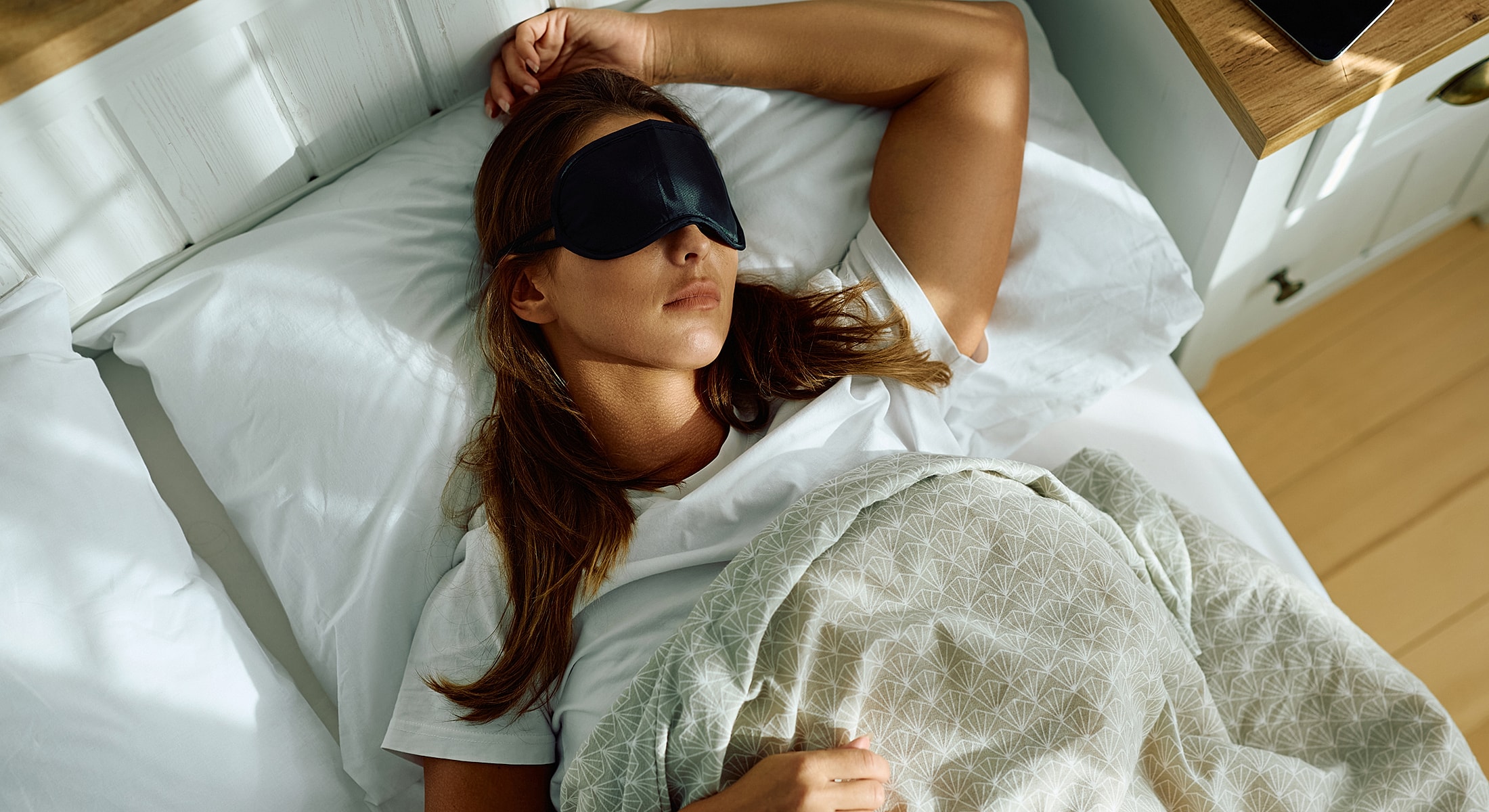
















Poor sleep affects more than just your energy — it can impact your health, focus, and quality of life. At the Southern California Center for Ear, Nose, Throat, and Allergy (SoCal CENTA) in Palmdale, we offer comprehensive sleep studies to identify what’s disrupting your rest and help you find effective, long-term relief.
Our team uses modern diagnostic tools to track sleep patterns, breathing, and brain activity. With this detailed insight, we can create a personalized treatment plan to improve your sleep and overall well-being.

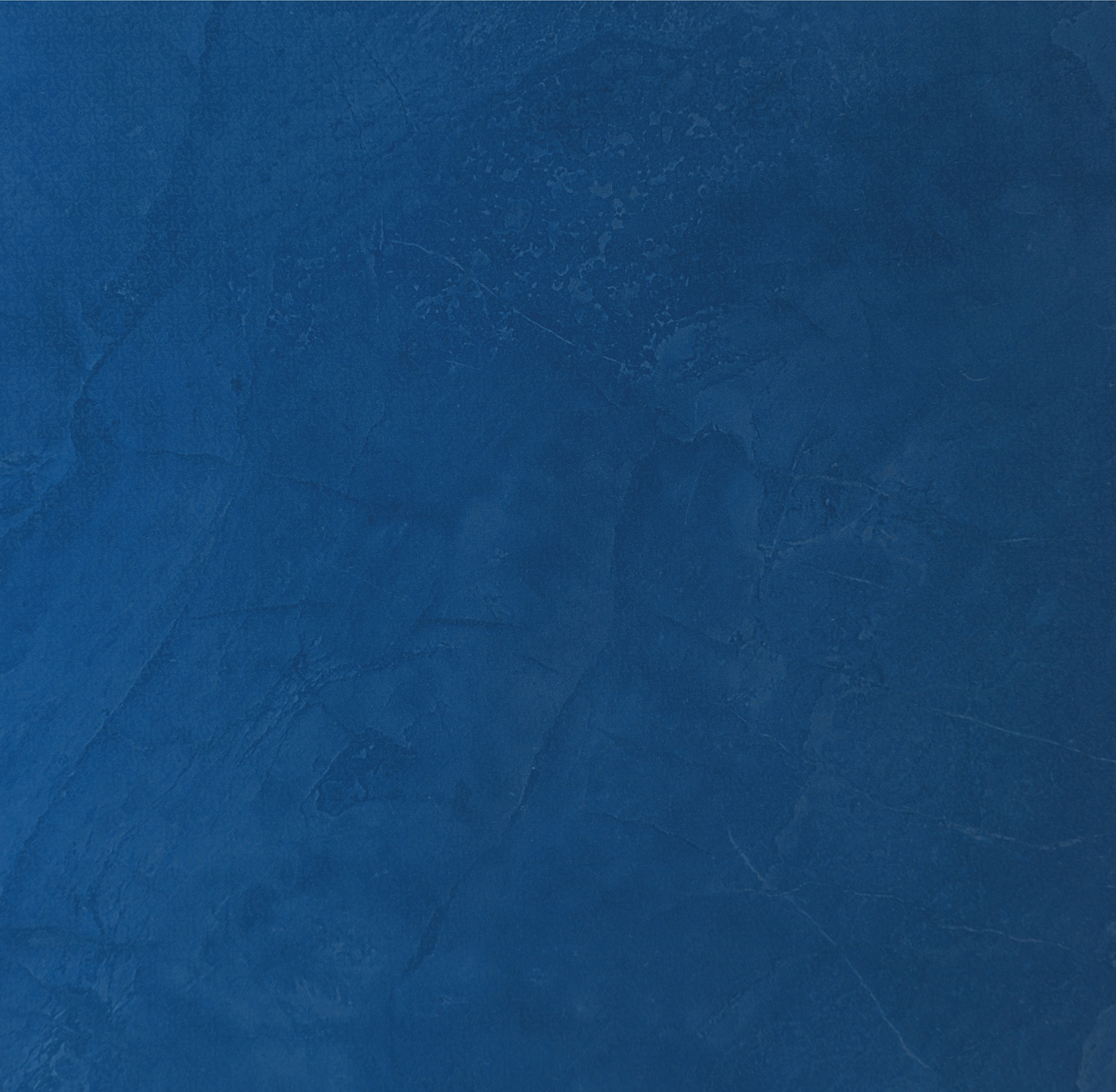
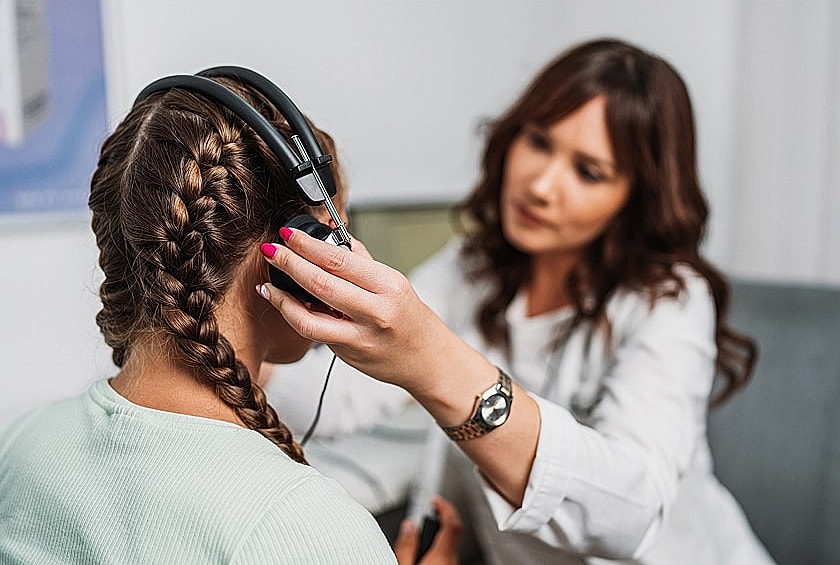
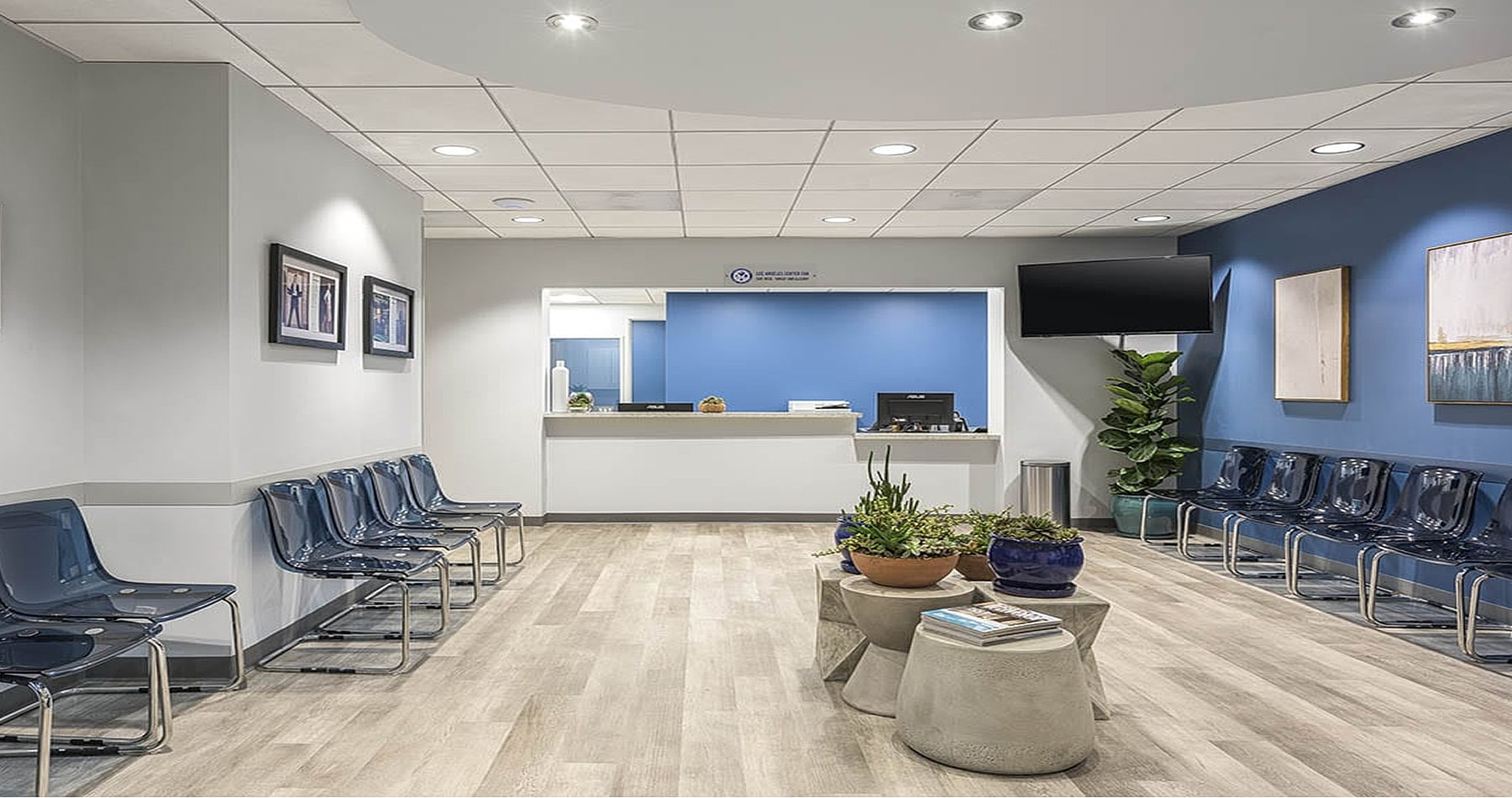
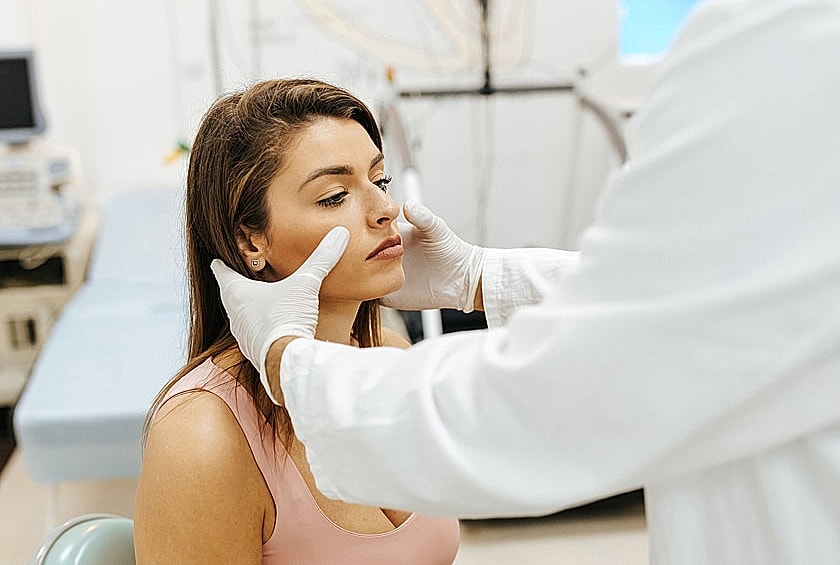
A sleep study is a diagnostic evaluation that monitors how your body functions while you sleep—tracking breathing, brain waves, heart rate, oxygen levels, and movement. This testing is key to diagnosing conditions like obstructive sleep apnea, insomnia, restless leg syndrome, and narcolepsy.
Depending on your symptoms and needs, testing can be done either in a sleep lab or at home. Small, noninvasive sensors are used to collect data such as airflow, oxygen saturation, muscle activity, and snoring. The goal is to detect irregularities that may be affecting the quality of your sleep.
Once your results are reviewed, your specialist will walk you through a treatment plan tailored to your diagnosis—helping you breathe easier, feel more rested, and restore energy during the day.
The Initial Sleep Studies Consultation: Your visit begins with a detailed conversation about your symptoms, sleep habits, and medical history. Our sleep specialists will use this information to recommend the most appropriate type of study—either at-home testing or an overnight sleep lab. Palmdale Sleep Studies patients may also be asked to track their sleep patterns for a few nights in a journal to better understand their routine, nighttime awakenings, and daytime fatigue.
Sleep Study Preparation: Before the study, you’ll receive clear instructions to help ensure accurate results. This may include avoiding caffeine, alcohol, or certain medications the day of your test. Whether your study is done at home or in a sleep center, the setup is designed to be as comfortable and low-stress as possible. Soft clothing, a quiet environment, and minimal disruption allow your natural sleep cycle to be monitored accurately. The data collected will help guide your next steps and inform any necessary treatment.
Sleep studies offer a detailed examination of how your body functions during sleep. This enables our team to pinpoint specific disorders that may be impacting your sleep and overall health.
Some of the most common conditions diagnosed through sleep testing include:
This condition involves persistent difficulty falling asleep, staying asleep, or waking too early. Often related to stress, anxiety, or underlying health concerns, insomnia can significantly impact daily life. A sleep study helps identify contributing factors, such as nighttime awakenings or coexisting sleep disorders.
Sleep apnea causes repeated pauses in breathing during sleep, often leading to loud snoring, gasping, and poor oxygenation. Obstructive sleep apnea occurs when airway tissues collapse, while central sleep apnea is related to disrupted signals from the brain. A sleep study confirms the presence and severity of either type, helping guide the right treatment approach.
RLS creates an intense urge to move the legs, often accompanied by discomfort or tingling. These symptoms typically worsen at night and can interrupt deep sleep. Sleep testing helps track involuntary leg movements and assesses how significantly they disrupt rest.
This neurological disorder is marked by extreme daytime sleepiness, sudden sleep episodes, and, in some cases, muscle weakness (cataplexy). Additional symptoms may include vivid dreams or hallucinations at sleep onset. A specialized daytime test (MSLT) is often used after a nighttime study to confirm the diagnosis.
Teeth grinding or clenching during sleep can cause jaw pain, headaches, and wear on the teeth. Sleep studies can detect abnormal jaw muscle activity and evaluate its effect on overall sleep quality.
These disorders involve unusual behaviors during sleep, such as walking, talking, or episodes of intense fear. A sleep study can help determine whether these events are linked to disrupted sleep cycles or underlying neurological issues.
At SoCal ENT in Palmdale, we offer a full range of diagnostic sleep studies to help pinpoint the cause of sleep disturbances. Based on your symptoms, medical history, and lifestyle, your provider will recommend the most appropriate test for accurate diagnosis and effective treatment planning.
This test is performed at home and monitors breathing, oxygen levels, airflow, and heart rate while you sleep. It's typically used to evaluate patients for obstructive sleep apnea (OSA) and offers a convenient alternative to in-lab studies when appropriate.
An overnight test performed in a sleep center, polysomnography captures detailed information on brain waves, muscle activity, eye movement, heart rate, oxygen saturation, and breathing patterns. It’s considered the gold standard for diagnosing complex or multiple sleep disorders.
After a confirmed sleep apnea diagnosis, this study helps determine the optimal continuous positive airway pressure (CPAP) settings. It ensures the therapy delivers effective results by keeping the airway open throughout the night.
This study combines the initial diagnostic portion of a sleep test with CPAP titration in a single night. It’s ideal for patients with moderate to severe OSA and allows for quicker diagnosis and initiation of therapy.
Used when patients don’t respond well to CPAP therapy or need varying pressure levels while breathing in and out. Bilevel positive airway pressure (BiPAP) is particularly beneficial for individuals with coexisting pulmonary or neuromuscular conditions.
Adaptive servo-ventilation (ASV) is used for central sleep apnea or complex cases that haven’t improved with traditional CPAP or BiPAP therapy. The test determines how well the device supports stable breathing patterns throughout the night.
This daytime study measures how quickly a person falls asleep in a quiet environment and how often REM sleep occurs. It is primarily used to evaluate excessive daytime sleepiness and diagnose narcolepsy.
The MWT assesses your ability to remain awake over a series of quiet, seated sessions. This test is commonly used to evaluate treatment effectiveness or confirm alertness for those in safety-sensitive jobs.

A sleep study may be appropriate if you're experiencing:
If sleep issues are affecting your energy, focus, or quality of life, a diagnostic sleep study can help identify the cause. Early evaluation leads to more effective treatment—and better rest. Contact SoCal ENT to find out if a sleep study is right for you.

Your sleep study results are typically available within one to two weeks. After reviewing the findings, we’ll schedule a follow-up visit to walk you through the results, explain your diagnosis, and recommend a treatment plan tailored to your sleep concerns.
Most results remain accurate for several years unless your symptoms change significantly. If that happens, we may recommend a new evaluation. A follow-up sleep study consultation with our ENT team ensures you receive the most effective care tailored to your current needs.

Once we've reviewed your sleep study results, we'll guide you through the next steps and recommend treatment options that align with your diagnosis and lifestyle. Your personalized care plan may include:
Together, we’ll develop a care plan that supports both restorative sleep and overall health.
Sleep studies are essential for diagnosing hidden sleep disorders like apnea and insomnia. They reveal detailed insights into your breathing, brain activity, and sleep patterns. This information helps identify the root cause of your symptoms. With accurate results, your provider can craft a tailored treatment plan to enhance your sleep quality and overall health.
The cost of your sleep study varies based on your insurance and the type of study. Our team will discuss pricing and payment options with you.
Our Palmdale Sleep Studies team is ready to help you check if your insurance plan covers diagnostic sleep studies.
After reviewing your results, your ENT specialist will discuss treatment options with you. These options may include CPAP therapy, Inspire therapy, oral appliances, or lifestyle modifications.